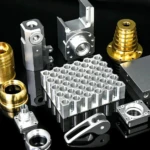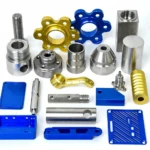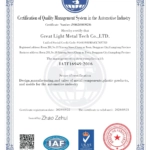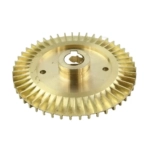Introduction to CNC machining aluminum alloy
CNC machining has become a key process in manufacturing, making it easy to create complex and precise parts. Among the various materials used in CNC processing, aluminum alloys stand out due to their unique characteristics and applications. In this article, we will dig into the world of CNC-processed aluminum alloys and explore its benefits, challenges and applications.
Benefits of CNC machining aluminum alloys
Aluminum alloys are a popular choice for CNC processing due to their high strength to weight ratio, corrosion resistance and excellent thermal conductivity. These characteristics make it an ideal material for a wide range of applications, including aerospace, automotive and industrial components. CNC machining of aluminum alloys offers a variety of benefits, including:
- High precision and accuracy
- Quick production time
- Improved finish
- Reduce material waste
Challenges of CNC machining aluminum alloys
Although CNC machined aluminum alloys has many benefits, it also presents some challenges. One of the first challenges is the high thermal conductivity of the material, which can cause rapid wear of the cutting tool. In addition, aluminum alloys can be easily buried and scratched, requiring specialized tools and techniques to achieve a smooth effect.
Application of CNC processing aluminum alloy
CNC machined aluminum alloys are used in a variety of applications, including:
- Aerospace components, such as aircraft parts and satellite components
- Automotive components such as engine blocks and cylinder heads
- Industrial components such as mechanical parts and equipment components
- Consumer products such as electronics and household appliances
Post-processing and completion of services
After the CNC machining process is completed, the parts may require post-processing and service to achieve the required surface surfaces and properties. These services may include:
- Grinding and polishing
- Anode and coating
- Drilling and knocking
- Assembly and testing
in conclusion
CNC machining of aluminum alloys is a complex process that requires specialized equipment, technology and expertise. By understanding the benefits, challenges and applications of CNC machining aluminum alloys, manufacturers can create high-quality parts that meet the needs of various industries. We are perfect for providing advanced five-axis CNC machining equipment and production technology, providing one-stop post-processing and completion services to ensure your parts meet the highest quality and accuracy.
FAQ (FAQ)
- What is the difference between CNC processing and traditional processing?
CNC machining uses computer-controlled machines to create precise parts, while traditional machining relies on manual techniques and machines.
- What are the advantages of using aluminum alloys in CNC processing?
Aluminum alloys have a high strength to weight ratio, corrosion resistance and excellent thermal conductivity, making them an ideal material for a variety of applications.
- Can CNC-processed aluminum alloys be used for high volume production?
Yes, CNC machined aluminum alloys can be used in high volume production, providing fast production times and improved finishes.
- What are the post-processing and completion services for CNC processing aluminum alloy parts?
Post-treatment and finishing services include grinding and polishing, anodizing and coating, drilling and attacking, and assembly and testing.
- How to choose a reliable CNC processing manufacturer?
When choosing a CNC machining manufacturer, consider factors such as equipment, technology, expertise and customer service to ensure that your parts meet the highest standards of quality and accuracy.



















